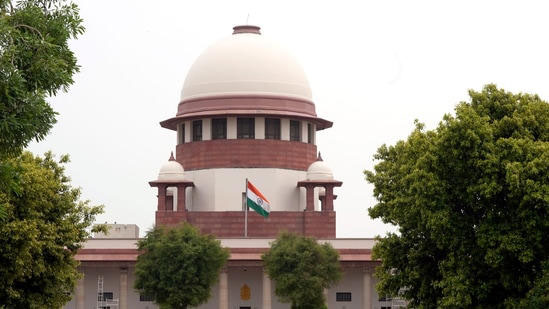NEW DELHI, July 17
Observing that the country’s judicial system often finds itself grappling with pervasive issues of prolonged delay and suspected political influence, the Supreme Court has revived the trial of Chhote Singh, former BSP MLA from Uttar Pradesh, in a three-decade-old double-murder case.
A bench of Justices Vikram Nath and Satish Chandra Sharma said, “We also acknowledge that it is evident from the trial court’s order dated May 19, 2012 that political power has been leveraged to secure the withdrawal of prosecution of accused Chhote Singh.”
It noted that the nine other accused were put to trial after their applications for withdrawal of prosecution were rejected without a reasoned order.
The bench said the May 19, 2012 order was challenged by both the accused and the victims, but the matter remained pending before the Allahabad High Court for 12 years, leading to stagnation in the trial proceedings, which is “deeply troubling”. Given the gravity of the situation and the risk of miscarriage of justice, urgent action was warranted, it added. “The judicial system of our country often finds itself grappling with the pervasive issues of prolonged delay and suspected political influence within the legal proceedings. The present case highlights the alarming trend where cases, particularly those involving influential figures, face significant delays, obstructing the administration of justice. The undue influence wielded by powerful individuals further exacerbates the situation, raising concerns about fairness and impartiality,” the bench observed. It added that the case presents concerning circumstances, wherein politically-influential individuals, accused of a double murder committed in broad daylight, have evaded trial for almost three decades.
“Considering the material on record, the political influence of accused Chhote Singh and the trial court’s casual approach towards the accusations against the then sitting member of the Legislative Assembly in allowing withdrawal of his prosecution, this court is of the opinion that merely because an accused person is elected to the Legislative Assembly cannot be a testament to their image among the general public,” it said. “In the light of the discussion made above, we are inclined to set aside the withdrawal of prosecution of accused Chhote Singh as allowed by the trial court,” the bench said. The top court said matters of gruesome crime like a double murder do not warrant withdrawal of prosecution merely on the ground of good public image of an accused named in the chargesheet after thorough investigation. “Contrary to the trial court’s view, such withdrawal cannot be said to be allowed in public interest. This reasoning cannot be accepted, especially in cases of involvement of influential people,” it said in its July 15 order.
The bench was also critical of the high court’s approach in dealing with the case. “The high court, in repeatedly allowing the adjournment requests, has only allowed the accused persons to deploy dilatory tactics to delay their trial and failed to ensure that the justice system is set in motion and not halted due to the lamentable spectre of political influence,” it said. Singh, along with nine others, is accused of indiscriminately shooting at Rajkumar and Jagdish Sharan on May 30, 1994. Both later succumbed to the injuries.
During the pendency of the trial, Singh got elected to the Uttar Pradesh Assembly as an MLA on a Bahujan Samaj Party (BSP) ticket in 2007. The BSP, which came to power in Uttar Pradesh in 2007, decided to withdraw the prosecution against Singh and others in the case under section 321 of the CrPC in 2008. In 2012, the trial court decided the application for withdrawal of prosecution in Singh’s favour, observing that his image is good among the public and he is a respected citizen of the society. The trial court said the public has shown its trust in him by electing him to the Legislative Assembly. The applications for withdrawal of prosecution regarding the other accused were dismissed.
The 2012 order was challenged before the high court by those accused against whom the prosecution continued as well as the widow of one of the victims. The apex court noted that the matter is pending before the high court since then. The bench, in its verdict, said it is not dealing with the issue of the other accused as the complainants have approached the apex court challenging the repetitive adjournments in their criminal revision petitions against the withdrawal of Singh’s prosecution.
“Other accused persons are not before us, thus we are not going into the merits of their applications seeking withdrawal of prosecution. However, acknowledging the extensive delay already caused in the case, we are inclined to request the high court to ensure that justice is not further delayed or compromised due to political influence or any other extraneous factors,” it said.
Emphasising the paramount importance of ensuring the progression of a trial without further delay, the bench directed the high court to retain only copies of the trial court record for its perusal and consideration in disposing of the criminal revision petitions of the accused, and send back the original record for an expeditious conclusion of the criminal trial.



























